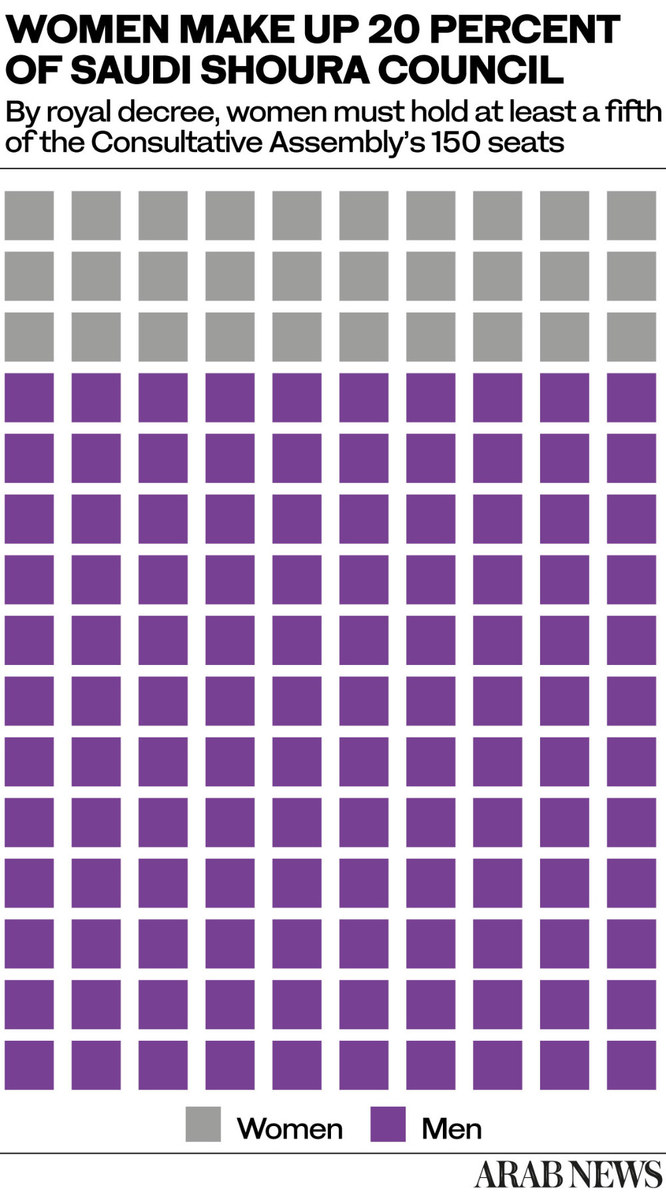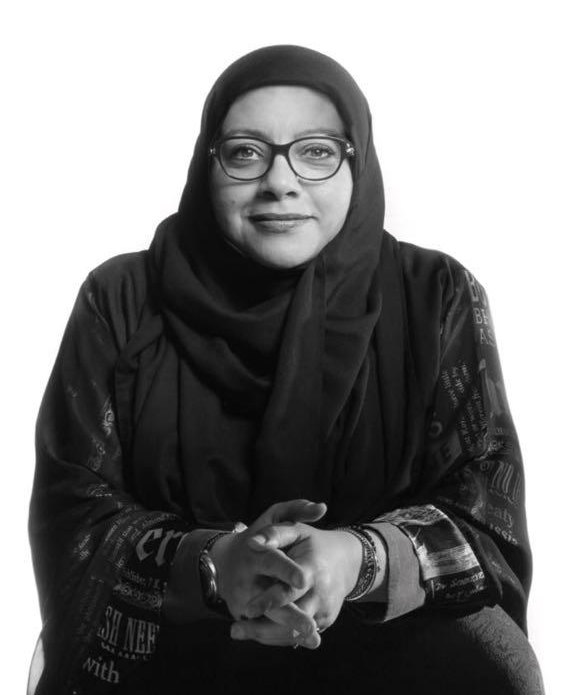DUBAI: In recent years the world watched in awe as Saudi Arabia issued a succession of laws to expand the rights and freedoms enjoyed by women. More women are joining the workforce than ever before — the result of economic and social reforms undertaken by the government.
The transformation is evident across the Kingdom, with women now occupying key posts in government departments, the private sector, and in the field of art and entertainment.
The idea of women’s empowerment and increased workforce participation took concrete shape with the launch of the Saudi government’s Vision 2030 reform program in 2016. “Generally, what you are seeing now is a higher participation rate due to the increase in employment opportunities for women across the board,” Norah Alyusuf, chief business planning officer of Vision 2030’s Quality of Life Program Center, told Arab News.
The program seeks to improve the quality of life of residents and visitors to the Kingdom by developing the necessary environment to create more vibrant options that enhance the experience of citizens and residents.
According to Alyusuf, historically, many generations of women were limited in their choice of university majors, owing to the inaccessibility of many roles in the female employment ecosystem in Saudi Arabia.
“But today, the regulatory landscape for women’s employment has drastically empowered women in the workforce in support of Vision 2030,” she said.
“This growing and thriving ecosystem encourages and inspires women’s participation across economic and regulatory drivers. You are seeing more diversity, gender balance and healthy competition.

Norah Ali Alyusuf, Chief Business Planning Officer at the Quality of Life Program Centre and member of the board of the Saudi Polo Federation. (Supplied)
“Women going to university today have the space to be more creative as they have more options now than in the past.”
Alyusuf is a founding board member of the Saudi Polo Federation and is an untiring advocate of women and girls’ participation in sports. Additionally, she is the chairperson of the Desert Polo Event hosted annually by the Royal Commission of AlUla.
She said women not only make up more than 40 percent of the Quality of Life Program Center’s workforce, but are also actively driving the initiatives supporting the Quality of Life mandate.
The seeds of change in the direction of gender equality in Saudi Arabia were sown in the first two decades of the 21st century. In 2013, King Abdullah appointed 30 women to the previously all-male Shoura Council — which advises the government on new legislation — and issued a decree stating that women should always hold at least one-fifth of the council’s 150 seats.
Major changes began in 2015, when women in the Kingdom cast their votes for the first time and were also allowed to contest — for the first time in the country’s history — municipal elections. Then in 2017, King Salman passed an order allowing women to obtain government services such as healthcare and education without the need for permission from a guardian.
More change came in 2018, with the lifting of the ban on women driving, and in 2019, when it became legal for women to obtain passports or travel without the permission of a male guardian.
Despite the disproportionate impact of the COVID-19 pandemic on the distaff side globally, women in Saudi Arabia have made rapid social and professional strides on the back of the above-stated reforms.
According to the General Authority for Statistics, female participation in the Kingdom’s workforce rose to 33 percent at the end of 2020, up from 19 percent in 2016.
The growing numbers of women joining the workforce has helped the Kingdom achieve its target of female labor force participation 10 years ahead of time and lifted its international rankings in women’s economic inclusion and empowerment indices.
In the World Economic Forum’s Global Gender Gap Report 2021, Saudi Arabia was ranked 147 out of 156 countries.
For 2018-2022, the United Nations Economic and Social Council elected Saudi Arabia to the UN Commission on the Status of Women, and in the World Bank’s 2021 Women, Business and the Law Index, Saudi Arabia scored 80 out of 100, well ahead of the global average.

Somayya Jabarti
“There are doors and windows everywhere now for women in the Kingdom, and where there isn’t one, one is created,” Somayya Jabarti, a seasoned Saudi media professional who now sits on the Shoura Council, told Arab News. Jabarti has the distinction of being appointed in 2014 as the first woman editor of a Saudi national newspaper.
Jabarti says that previously, consent from a male guardian for a woman to work was not required under law, but that it was nevertheless the norm.
“One of the main factors contributing to more Saudi women in the job market is that no one was counting before. We weren’t even on the radar,” she said. “Now, having women in a company is the means to show how progress is being implemented and marked for any establishment or institute.
“Since 2018, there has been a lot of progress across different domains and to a certain extent many people internationally question whether this change is actually being felt or not in Saudi Arabia,” said Jawaher Al-Sudairy, director of research at Alnahda Society, one of the oldest nonprofit organizations in Saudi Arabia, dedicated to the economic empowerment of women and lower-income households in Saudi Arabia.
Saudi Arabia had a meeting with the UN Convention on the Elimination of All Forms of Discrimination against Women (CEDAW) in 2018. The follow-up meeting between the Kingdom and CEDAW will take place this year to examine which of the 35 detailed recommendations have been addressed.
“We have been tracking all recommendations provided by CEDAW to see which ones have been addressed and which haven’t,” Al-Sudairy said. “If the law has changed, we also check whether processes are in place that allow women to access their rights in the law or lodge a complaint if they haven’t.”
According to both Al-Sudairy and Jabarti, Saudi entrepreneurs were ready to start their own businesses or join the workforce even before the recent reforms were adopted.
“These are not just for women, they are for all Saudis, because expatriates are still dominant in the workforce,” Al-Sudairy told Arab News. “Even with the increase of women in the labor force, they still account for a minority share and are less than 10 percent of total employees in the private sector.”
Takafu, a project carried out by the Alnahda Society’s research unit, found that Saudi women account for only 30 percent of total Saudi employees in the private sector.
“There’s much room for improvement on having women in decision-making roles at all levels,” said Alyusuf. “Only when you have an equal distribution at all levels can you get a balanced ecosystem.”
For her part, Jabarti thinks the issue also involves the cooperation of men. “The men in your workplace, or whoever you report to, must allow you or give you the authority to make decisions. One doesn’t work without the other,” she told Arab News.
She summed up the situation for Saudi women this way: “There wasn’t a sense of entitlement among women before. Now they have entitlement — to work and to liberty.”
















